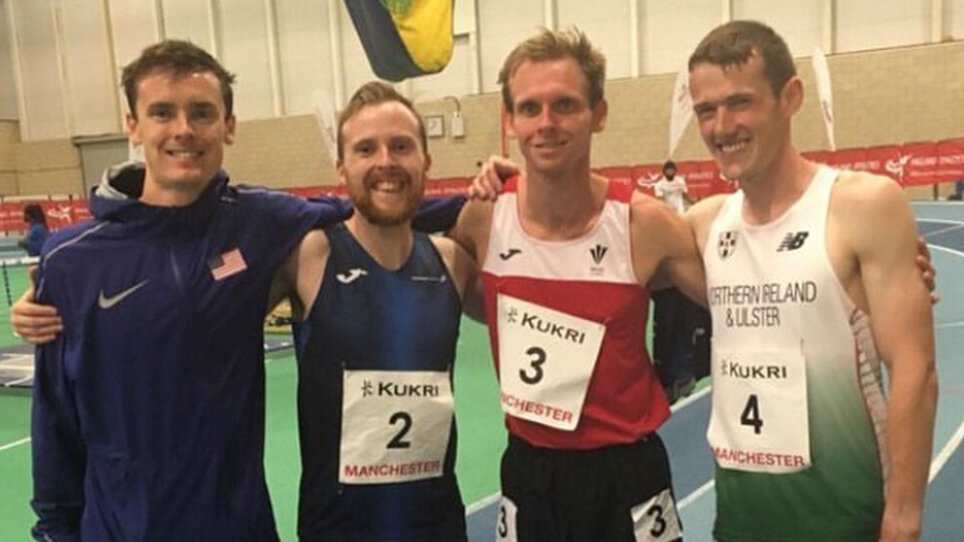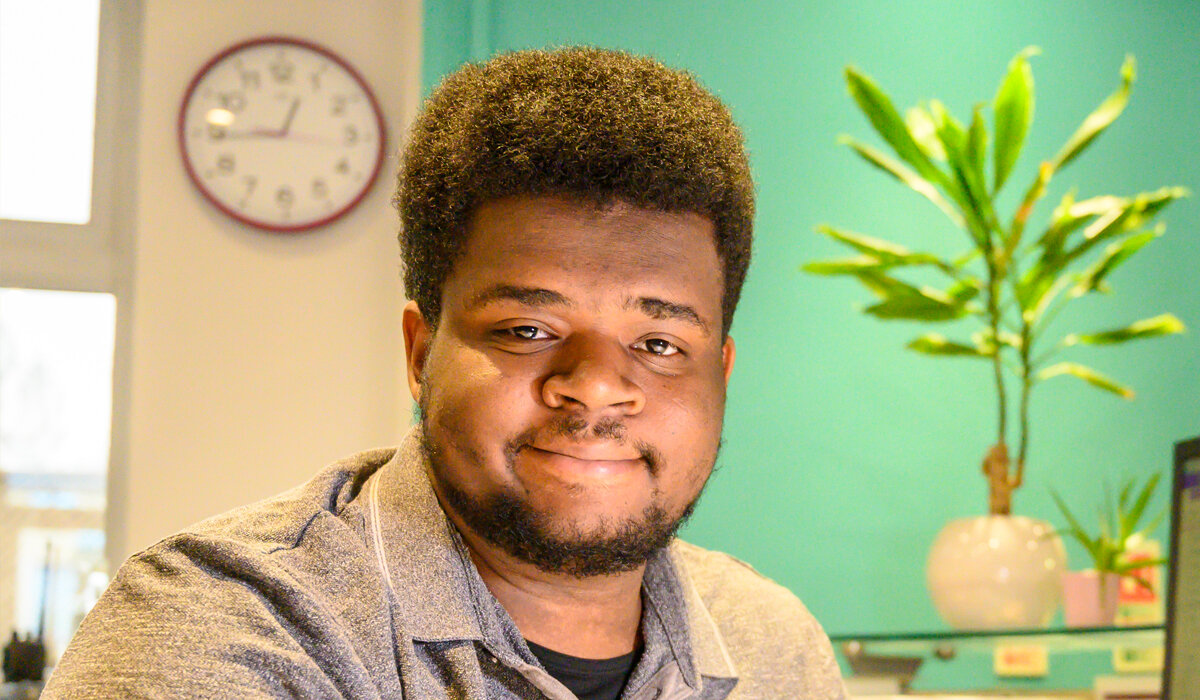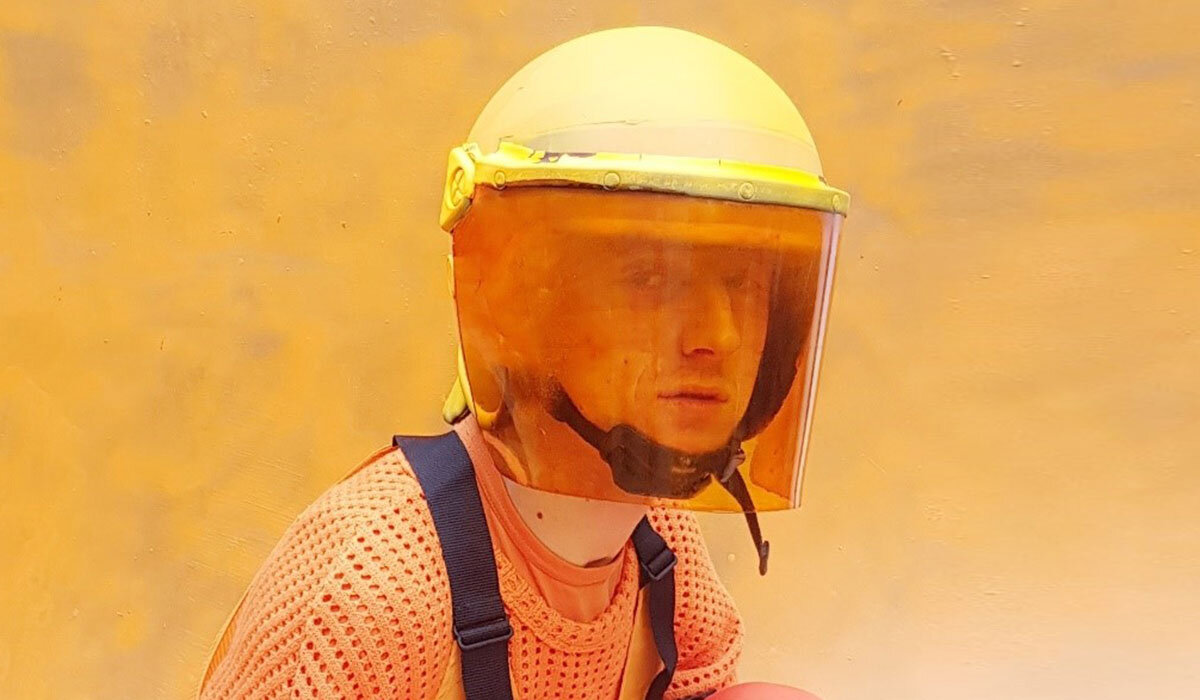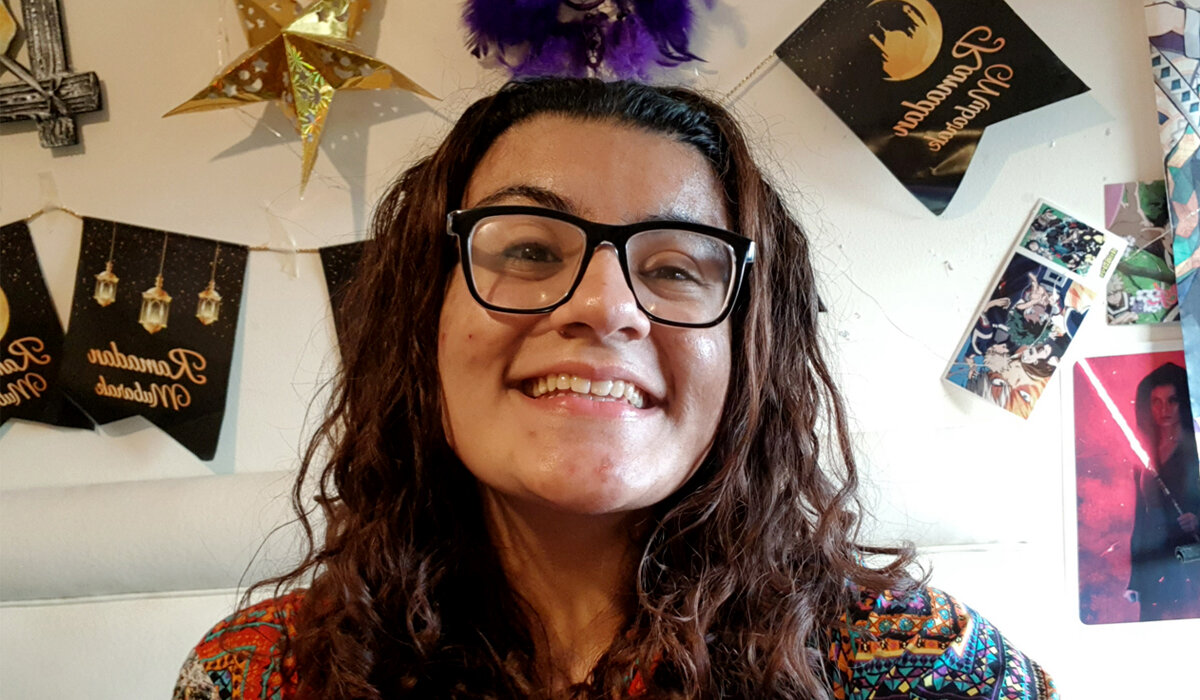
“Running has helped me find my voice, gain confidence and feel equal”
Stephen Morris
– on running the London Marathon and being an autistic Paralympian
To celebrate the upcoming London Marathon, we speak to Stephen Morris, an autistic two-time Paralympian running in support of the National Autistic Society. Stephen explains how he first started running, the impact of the sport on his wellbeing, and his tips for other autistic people who are looking to get into running.
Hi Stephen! We’re thrilled that you’re running the TCS London Marathon for our charity! How have you found training?
I’m very excited to complete the 26 miles! The London Marathon is the best marathon in the world. Cardiff has a big running community and everyone’s talking about it. I’m not going to focus on the time – I just want to complete it and enjoy the whole experience of it and raise awareness of autism. I want to show the world that autistic people can break down barriers and achieve great things. That’s my goal – to inspire people and show that anything is possible.
How did you first get involved in running and athletics?
Through my PE teacher, Mr Owens. He saw my talent aged 13 – I was lapping everyone in my class – so he told me to try out for the school’s cross-country team. My English teacher, Mrs Savage, persuaded me to join the school track team and I started competing. Then I caught the running bug – it lessened my anxiety and helped me relax when I had a bad day in school.
You’ve represented Great Britain at the 2012 and 2016 Paralympic Games. What was that like?
They were two different experiences. 2012 was more emotional and nerve-wracking because it was the home Games and I was new to Team GB. I was the quietest person in the team, but I had the best experience of my life – I’d dreamed of being an elite athlete.
2016 was more relaxing because I had already done it and bonded with the team over a four-year cycle. One of the new athletes in 2016, who I’ve known for six or seven years since, never thought of me as being quiet as a person. In 2012, I was a quiet person, but four years later, I was the chatty one because I knew my teammates well.
You’ve written about autism and running on X – how has running helped you?
Running has helped me find my voice, gain confidence and feel equal. The environment is quiet and thoughtful. You see different places, and meeting people has helped me a lot. Doing those competitions gave me more confidence talking to people and I’ve come out of my shell.
"I want to give something back, so working with the National Autistic Society, I’m running a free weekly outdoor circuit class for autistic adults."

Picture: Rhys Jones
I want to give something back, so working with the National Autistic Society, I’m running a free weekly outdoor circuit class for autistic adults. It’s good to bring people together, give them confidence and just get them out of the house, meeting people. That’s the main objective – to meet people, make friends and gain confidence. At today’s class, everyone was smiling and enjoying themselves.
When did you first know or start to think you were autistic?
I was three years old when I was diagnosed, so I’ve known for as long as I can remember. [People] thought I was deaf at first because I wasn’t socialising. My parents took me to the GP and they sent me to the University Hospital of Wales. Looking back, it was a blessing in disguise to be diagnosed early because my family and I could plan for the challenges ahead from childhood to adulthood.
What was life like for you growing up? How did you find school?
In primary school, I wasn’t a confident person and I struggled to make friends. I kept my head down in classes and was not very sociable. When I went to secondary school, it was a different environment for me. I felt like an outcast because other students judged me. I was a target for school bullies which sank my confidence and self-esteem.
What does being autistic mean to you?
It means a lot being autistic myself. It can be quite tough, [especially when dealing with] distractions like too many people talking at once. When walking and talking, it’s hard to concentrate on having a conversation sometimes. It depends on the environment – I don’t like loud, explosive noises like fireworks or roadworks.
I’ve met a lot of autistic people around the world while competing. It’s nice to meet people like me. I’ve been lucky to meet some inspiring autistic people, like track and field athletes Mikey Brannigan and Owen Miller MBE, who have achieved great things.
What advice would you give to other autistic people who are looking to start a running career?
Talk to people. You don’t have to join a club – ask a friend, a family member or partner – just go out and run. It’s a nice community with a sense of togetherness. It’s not about how fast you run a mile; it’s about being together and socialising. It’s good for your mental wellbeing, and meeting new people is the best way to build your confidence.
What does autism acceptance mean to you?
It’s about celebrating autism and life as an autistic person. Every autistic person is unique, with special talents and skills. It’s about beating barriers, not just sporting achievements.
The National Autistic Society has supported me through a monthly social group. It’s quite fun and relaxed. We understand each other and have things in common. Without the charity, we wouldn’t socialise together – so thank you to the National Autistic Society.
Feeling inspired by Stephen’s story? Join Team Autism
Join Stephen in taking on a running challenge to raise vital funds.
- Are you a keen runner? Check out our online running branch.
- Read more Stories from the Spectrum here.
Similar stories

"I have always enjoyed art. I didn't speak until I was five, but I communicated through drawings."
Spencer Cotterell
- on autism, communication, and his love of art
Read more

"Queer culture seems to have an issue with intersectionality, especially towards those with disabilities."
George Morl
- on attitudes towards autism and disability in the LGBTQ+ community
Read more

"I want to give a voice to people who are not often represented in pop culture."
Iqra Babar
- on representing BAME autistic people through her art
Read more

The Spectrum magazine
Explore one of the UK's largest collections of autistic art, poetry, and prose. The Spectrum magazine is created by and for autistic people, and is available both online and in print.
Read the Spectrum





You are not alone
Join the community
Our online community is a place for autistic people and their families to meet like-minded people and share their experiences.
Join today